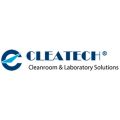How To Buy The Right Incubator For Your Laboratory?
Original Source: https://www.writerscafe.org/writing/globallabsupply/2170406/
Laboratory incubators are a specially designed machine that offers an ideal environment for cells or tissues so that these samples can be colonized and grown inside this machine for scientific research purpose. But there are different types of laboratory incubators like CO2 Incubators, microbiological incubators, shaking incubators, etc. Each of these incubators has its distinct features and uses. So, before you buy an incubator for your laboratory you need to think carefully. This is a long time investment and you need to keep almost every related point or matter under consideration before contacting any supplier.

A Microbiological incubator is also called a standard incubator or heat-only incubator. This incubator is equipped with heating circuits so that they can provide an ideal incubation temperature more than the ambient temperature to 80℃ to 100℃. So, if a laboratory has an ambient temperature of 25℃ then a microbiological incubator can offer temperature stating from 30℃. Here is a sample buying guide about the microbiological incubators-
Check the temperature range
For any microbiological incubator, the temperature range is very crucial. Any microbiological incubator provides a temperature greater than the ambient temperature. So, if you need a temperature less than 20℃ to 30℃, then a microbiological incubator is not an ideal choice. But, if the micro-organisms in your laboratory need the temperature and environment like that one present inside any living body( for example, a human body), you can choose a microbiological incubator.
Check the available space
This is another important point that you should not miss or neglect. You need to choose an incubator based on the available space. It is always a wise idea to choose an incubator that is a little smaller than the available space. This will help your ab employees to operate the machine easily and will also minimize any chance of machine-related hazards.
If your lab has a lot of space then you can buy a large incubator. But for small scale labs, a mini incubator is ideal. Benchtop incubators are also great if you have less space. These space-saving furniture offer a lot of help.
Make sure to understand the bacteria culture process
In general bacteria or cells have three groups according to their temperature range. That is,
Psychrophiles- those who need temperature more or less than - 4℃.
Mesophiles- bacteria that need temperature from 20℃ to 40℃ to colonize and increase their numbers.
Thermophiles- Cells, bacteria, and micro-organisms that need a higher temperature range (more than 100℃ to 120℃) to start increasing their numbers.
For the desired result, you need to maintain the temperature range strictly. A full range of microbiological incubators may not be ideal if your lab deals with mesophiles. Similarly, if your lab involves thermophiles, incubators with lesser temperature result will not provide what you want. Hence, try to choose an incubator that matches the temperature range of the cultured cells for an ideal result.
What apparatus you do use
Well, there are different types of apparatus like Petri dishes, test tubes, PCR Tubes, large flasks that are essential in the case of microbiology cultures. But there are different sizes of apparatus. So, not every size will fit inside any incubator. So, it is better to choose an incubator that fits all the apparatus you use. It is convenient because this trick reduces the cost of buying another set of equipment, especially for your incubator.
Types of culture
If your lab deals with DNA amplification then you need to buy an incubator that supports this process. Otherwise, you will not get that ideal result.
On the other hand, in case your lab involves tissue culture and yeast growth a simple microbiological incubator is enough. But, those who need a special shaker can invest in shaking microbiological incubators for convenience.
What to choose? Forced Air Flow or Gravity Force
In the case of microbiological incubators. Generally, two different types of airflow are used. One is the forced airflow and the other is gravity-based convection. Forced air incubators have air fans for air circulating techniques which allows the incubator to create continuous air circulation and maintain the temperature to accuracy. But, the gravity convection incubators do not have any fans. These machines work on the simple process of gravity incubation chamber and the dry spot can affect the culturing process.
But this process can often create a dry spot inside the hot air that goes upwards and the cool air comes downwards. If you have a bigger budget it is better to go for the forced airflow incubator. But if you have a tight budget then go for the gravity-based ones as they are priced reasonably.
This is a buying guide for buying a microbiological incubator. You can take help from this guide while shopping for the right incubator. Globallabsupply.com is a great site to shop for a Laboratory Incubator because of its diverse collection, affordable price, and constant customer support.
You can feel free to contact us whenever you have any queries regarding your microbiological incubators or any other lab equipment’s.
Other articles and publications:
Articles and publications of other companies:
- +1 (714) 754-6660
- 2106 N Glassell St, Orange, CA, 92865, USA
- www.globallabsupply.com/Chairs-Stools-s/1825.htm




